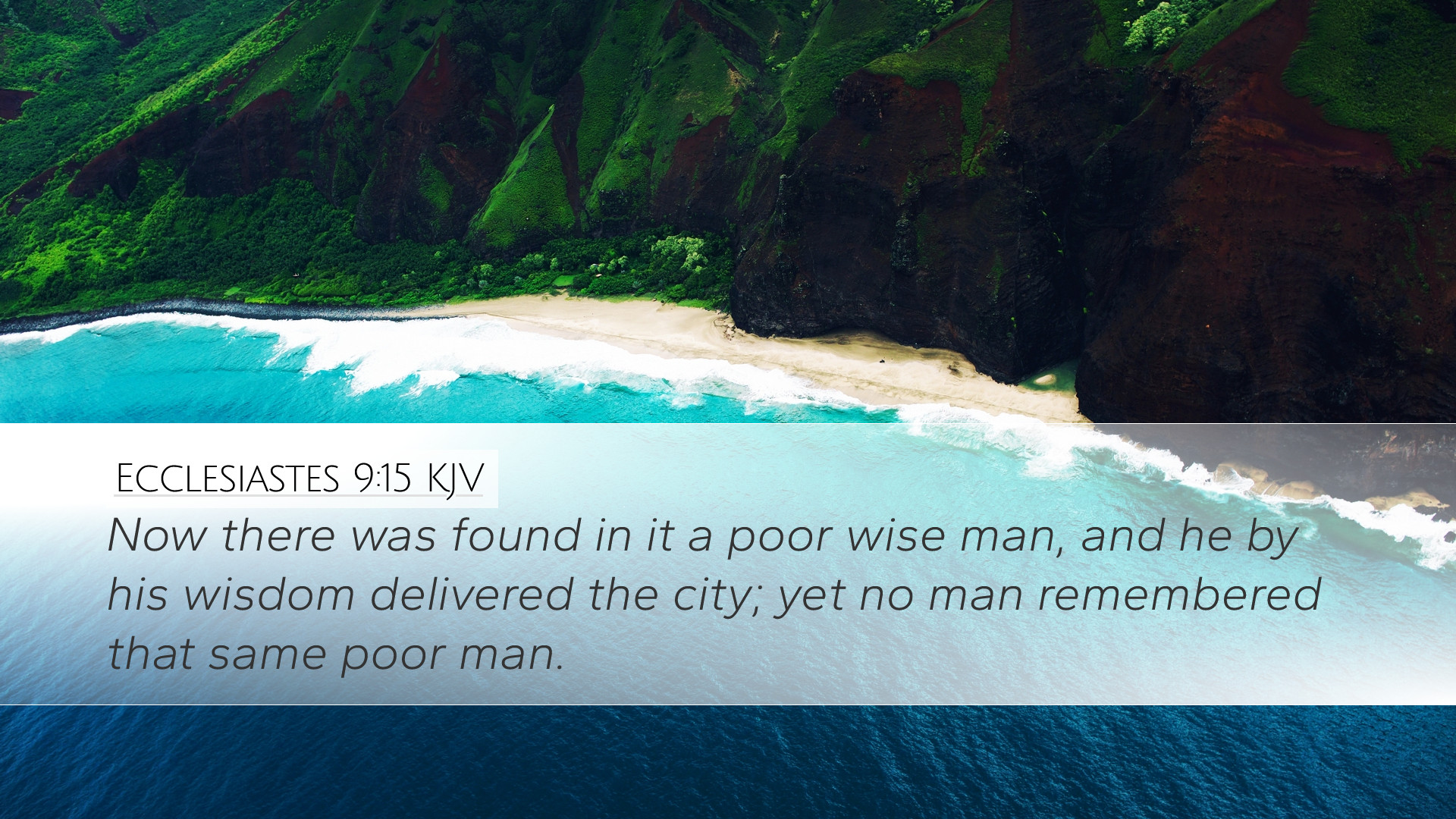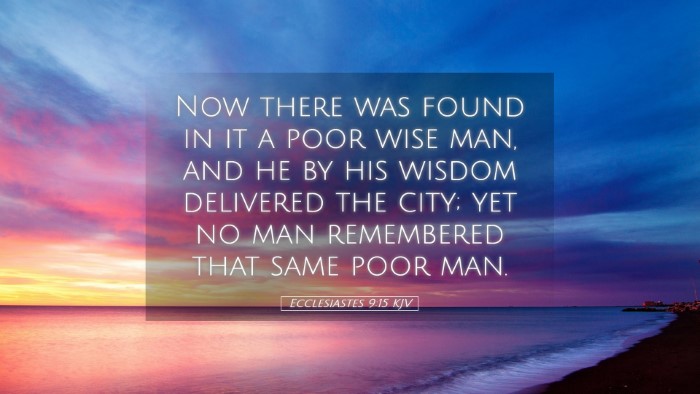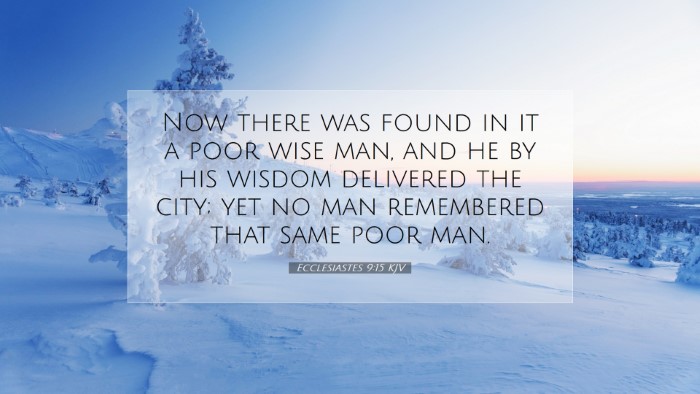Commentary on Ecclesiastes 9:15
Verse: "Now there was found in it a poor wise man, and he by his wisdom delivered the city; yet no man remembered that same poor man."
Introduction
The book of Ecclesiastes offers profound insights into the human condition, exploring themes of mortality, wisdom, and the pursuits of life. In Ecclesiastes 9:15, the narrative centers around a poor but wise man who saves a city, yet remains forgotten. This verse serves as a microcosm of the broader teachings of the book, highlighting the transient nature of glory and recognition.
Commentary Insights
The Poor Wise Man
Matthew Henry notes that despite his poverty, the man possesses wisdom that proves to be effective in delivering his city from calamity. This underscores the biblical principle that true value is found not in wealth or status but in wisdom and understanding. Albert Barnes expands on this idea, suggesting that the man's deliverance of the city showcases how wisdom can be more potent than might or riches.
Wisdom and Deliverance
Adam Clarke provides an insightful examination, positing that this man's wisdom represents a more profound insight into life’s complexities. He suggests that wisdom, rather than wealth, often leads to the preservation of life. The achievement of the poor wise man emphasizes that intelligence and strategic thinking are crucial for success, especially in dire situations.
The Fleeting Nature of Recognition
Despite the man’s significant contributions, he is quickly forgotten. Henry points out that this reflects a stark truth about human nature: people tend to overlook the humble servants of wisdom, favoring those who are wealthy or prominent. Clarke adds that public acknowledgment is often fleeting; the wise may not receive their due recognition in this life, a theme resonant throughout Ecclesiastes.
The City as a Symbol
The city in this verse can be interpreted in various ways. Barnes suggests it symbolizes the collective human experience, emphasizing how many are saved or aided by the wisdom of those who may not be in the limelight. Henry further asserts that cities often rely on the unseen labor of wise men, reaffirming the idea that lasting impacts come from unexpected sources.
Theological Implications
This passage raises critical theological considerations regarding the nature of divine justice and the recognition of true virtue. Clarke posits that while humanity may forget, God certainly does not. The poor wise man’s memory may fade from human acknowledgment, but his legacy lies within the eternal gaze of God, serving to encourage believers that divine recognition is far more significant than earthly accolades.
Practical Applications
- Valuing Wisdom Over Material Wealth: This verse teaches us that wisdom is of utmost importance and that one’s socio-economic status does not determine their value or potential impact.
- Encouraging Humility: The example of the poor wise man illustrates the virtue of humility. Leaders and believers alike should advocate for wisdom and understanding over pride and arrogance.
- Recognizing and Remembering the Overlooked: The church and society should seek to give voice and recognition to those whose contributions may go unnoticed, fostering a culture of appreciation for the humble.
Conclusion
Ecclesiastes 9:15 presents a powerful narrative about a poor wise man whose significant contributions go unremembered. Through the insights of renowned biblical commentators such as Matthew Henry, Albert Barnes, and Adam Clarke, we understand the importance of wisdom, the fickle nature of human recognition, and the enduring impact of a life lived in truthfulness and humility. As students, pastors, and theologians reflect upon this passage, they are reminded that true honor comes not from the adulation of men but from fidelity to divine principles.


